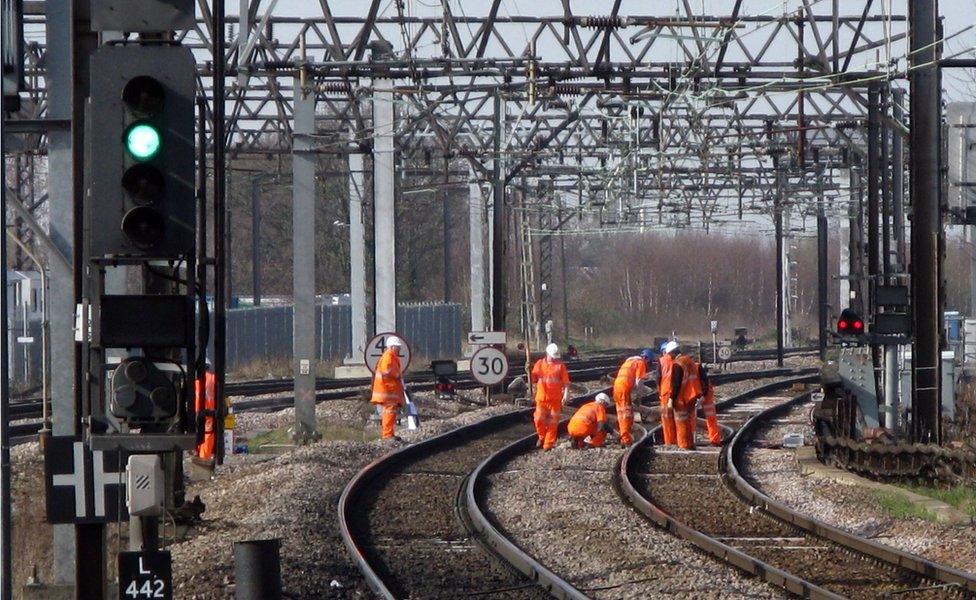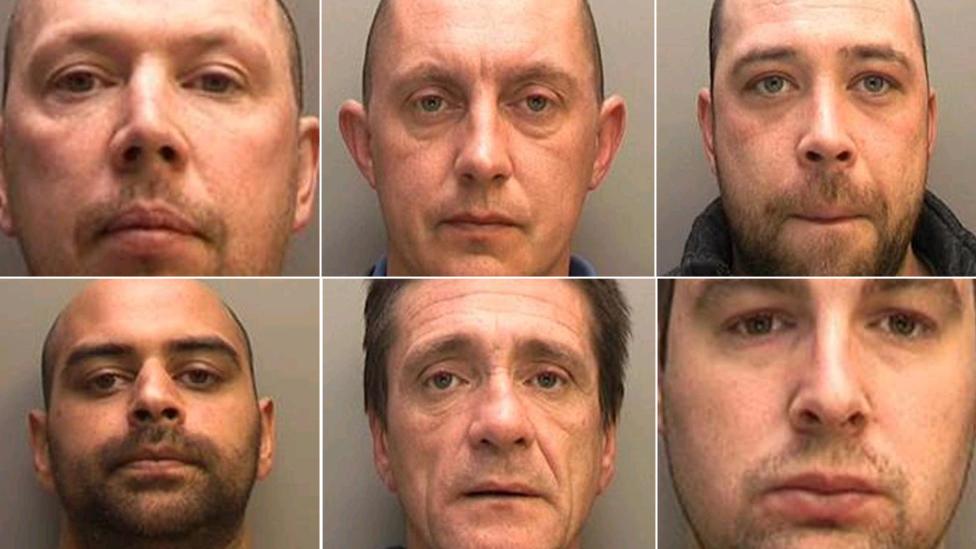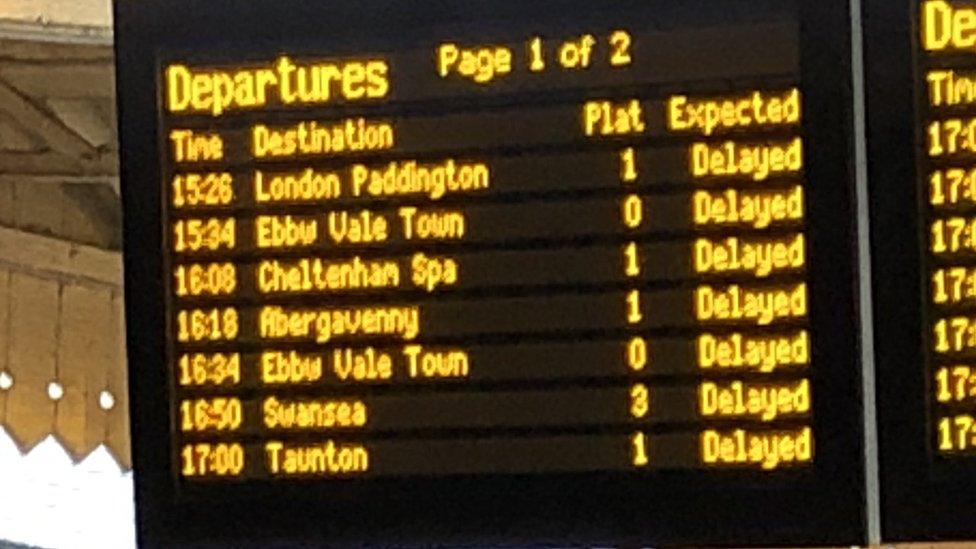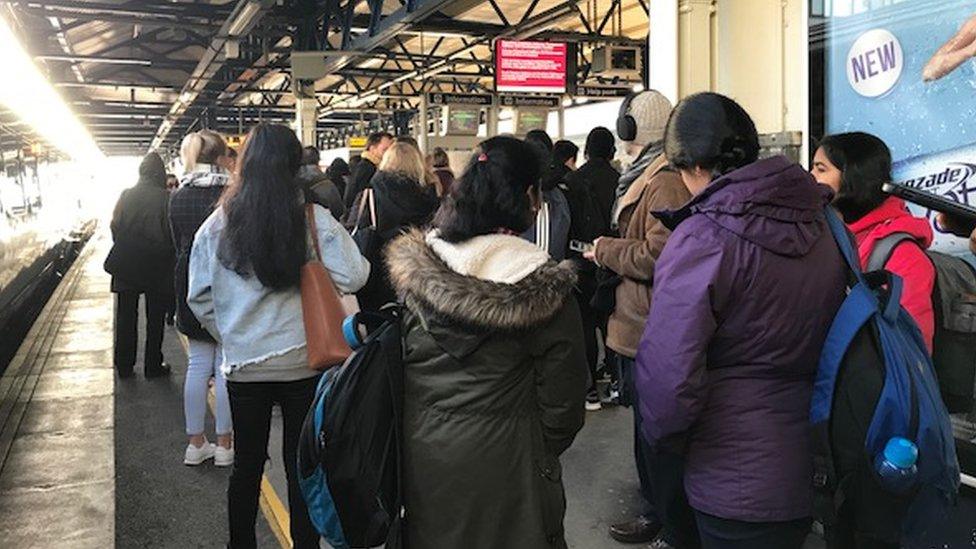Train delays because of UK cable thefts soar, says Network Rail
- Published

The length of time passengers are being delayed on Great Britain's railways because of cable thefts has reached a five-year high, new figures suggest.
The BBC's 5 Live Investigates found there were nearly 950 hours of delays in 2018 across more than 7,000 journeys in England, Wales and Scotland.
British Transport Police figures also show an 85% increase in live cable thefts last year.
Network Rail says thefts cost the taxpayer millions of pounds each year.
The figures do not include delays in Northern Ireland.
Metal laundering
Network Rail, which owns and maintains most of Great Britain's railways, said delays doubled from 2016-17, when 400 hours were recorded across 3,000 train journeys.
More than three-quarters of the trains affected were in or around London.
Police say an increase in global copper prices is leading to more organised gangs and opportunists ripping up or cutting down cables.

Thieves steal cables for the copper inside them, and then sell the metal on as scrap.
Supt Mark Cleland, from British Transport Police, said: "All metal theft is primarily driven by the price of metal so, as metal rises in value, we see a trend that crime rises with it. At the moment we're in this upward trend of the price of metal rising."
Experts say that even if the cable is security-marked, it can be made untraceable by stripping the rubber and granulating the metal at scrapyards.
'Extremely dangerous'
James Nattrass, director of incident management and operational security at Network Rail, said cable theft was "not a victimless crime".
"It costs the taxpayer millions of pounds a year, and the total cost to the economy is even higher when you consider the impact of delays to freight, and to passengers who want to get work.
"Not only is it disruptive for our passengers, it is also extremely dangerous for the perpetrators. Thousands of volts of electricity run through cables and interfering with them can be fatal."
The Scrap Metal Dealers Act was introduced in 2013 to try to clamp down on metal thefts - with cash sales banned and all dealers needing a licence.
But a Freedom of Information request showed that last year in England, a third of mobile scrap collectors had not renewed their licences.
The Local Government Association defended the act, saying: "A drop in the current levels of renewals could be for a number of reasons, not least one being that the act has subsequently discouraged those businesses who were not operating within the law."
A Home Office spokesperson said the act "continues to play a fundamental part of our efforts to tackle metal theft by removing the opportunities for criminals to dispose of stolen metal".
You can hear more on 5 Live Investigates at 11:00 BST on Sunday 14 April on BBC Radio 5 Live - or catch up later on BBC Sounds.
- Published13 January 2016

- Published8 April 2018

- Published21 March 2018
